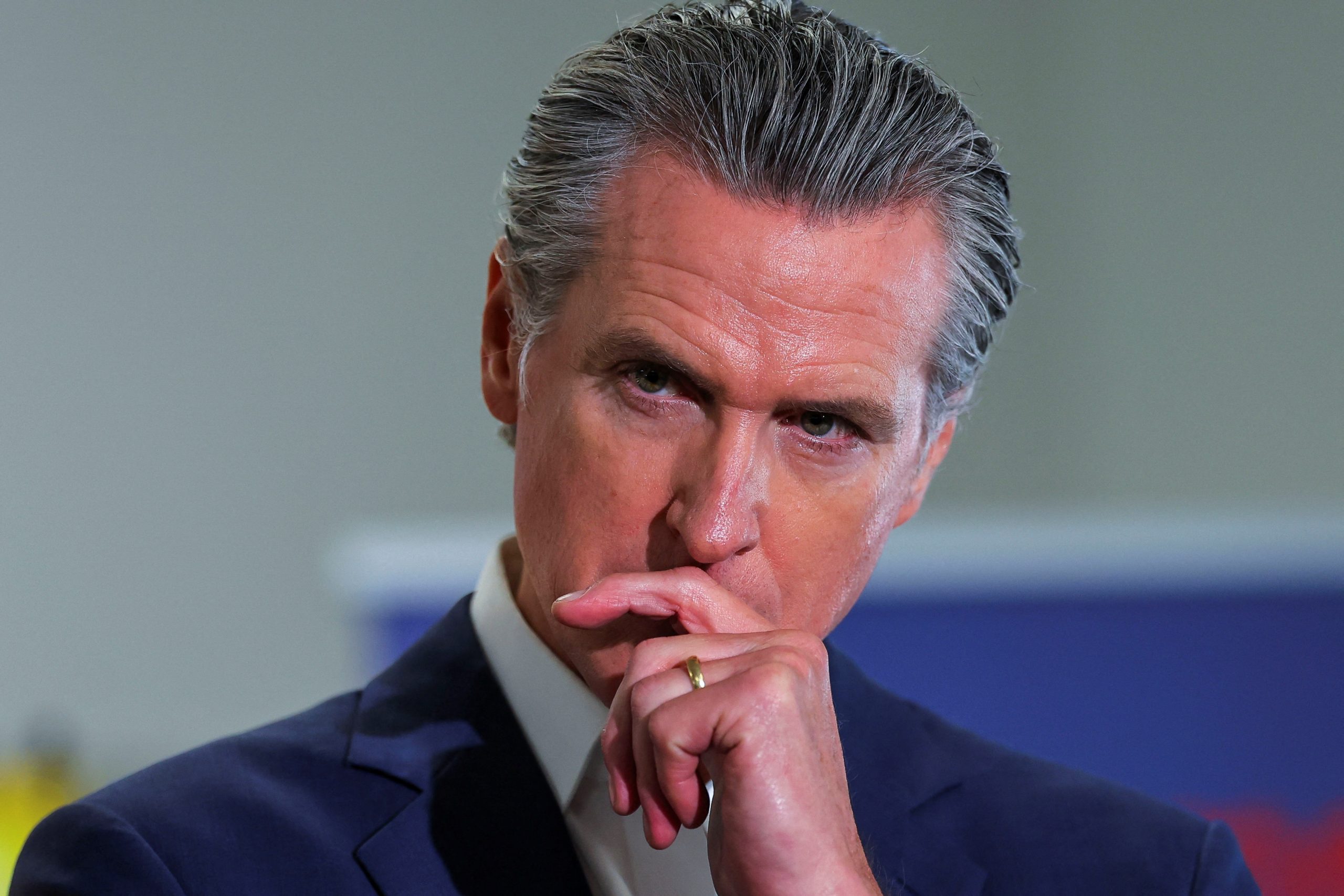Speaking with reporters on October 28, Gov. Gavin Newsom invoked Christian scripture while announcing legal action against the Trump administration over its handling of SNAP funding during the federal shutdown according to the . The comments, made alongside California Attorney General Rob Bonta and Health and Human Services Agency Secretary Kim Johnson, have sparked debate over whether Newsom used the same faith-based political language that Democrats frequently criticize as “Christian nationalism.”

The shutdown, which stretched 43 days, caused SNAP funding to expire on November 1 for the first time in the program’s six-decade history. Roughly 42 million Americans rely on the benefit. The lapse ended only after President Donald Trump signed a continuing resolution (H.R. 5371) on November 12, temporarily restoring government operations.
During the press conference, Newsom referenced his education at Santa Clara University, a Jesuit institution, noting that he was raised Catholic. He argued that both the Old and New Testaments emphasize feeding the hungry, citing specific passages from Matthew, Isaiah, Luke, and Proverbs. According to his remarks, this theme is “core and central” to God’s will, not optional. He went on to criticize federal officials for what he described as political “B.S.” in Washington, suggesting they were ignoring biblical teachings during their policy debates. He also suggested that those attending prayer breakfasts may be reading an “edited version” of the Bible.
The columnist notes that many progressive voices have long warned about Christian nationalism — often defined as the belief that the United States was founded as a Christian nation whose laws should reflect Christian priorities. Commentators such as David French in The New York Times and Zachary Wolf in CNN have argued that the ideology can blur the boundary between religion and government, posing risks to constitutional governance.
The column also reviews the historical origins of the phrase “separation of church and state.” It highlights that the phrase does not appear in the U.S. Constitution but comes from a letter written by President Thomas Jefferson to the Danbury Baptist Association. Scholar Daniel Dreisbach has argued that Jefferson did not intend the metaphor as a universal or definitive statement of First Amendment meaning. The column further points out that past presidents, from George Washington to Abraham Lincoln, frequently invoked religious language when urging national unity and moral action.
According to the columnist, such examples demonstrate that American political leaders across centuries have used faith-based arguments without being labeled “Christian nationalists.” In the columnist’s view, the modern critique tends to emerge more sharply when conservative Christians cite Scripture in public debate.
The article concludes that if Newsom can use biblical references to justify policy goals such as defending SNAP funding, then conservative Christians should feel equally free to rely on Scripture in shaping and presenting their own political arguments.
Sources:
The Christian Post — https://www.christianpost.com/voices/gavin-newsom-becomes-a-christian-nationalist.html




